| |||||||||||||
| Turnout | 3,401 | ||||||||||||
|---|---|---|---|---|---|---|---|---|---|---|---|---|---|
| |||||||||||||
| |||||||||||||
The Mataura by-election, 1898 was a by-election held on 26 May 1898 during the 13th New Zealand Parliament in the rural lower South Island electorate of Mataura.
| |||||||||||||
| Turnout | 3,401 | ||||||||||||
|---|---|---|---|---|---|---|---|---|---|---|---|---|---|
| |||||||||||||
| |||||||||||||
The Mataura by-election, 1898 was a by-election held on 26 May 1898 during the 13th New Zealand Parliament in the rural lower South Island electorate of Mataura.
The by-election was triggered after sitting Member George Richardson was declared bankrupt. [1] Robert McNab stated that had Richardson contested the election, he would not have accepted a nomination and allowed him to return unopposed. [2] McNab had previously represented the Mataura electorate from 1893 to 1896 when he was defeated by Richardson. [3]
The following table gives the election results:
| Party | Candidate | Votes | % | ±% | |
|---|---|---|---|---|---|
| Liberal | Robert McNab | 1,894 | 55.68 | ||
| Independent | Wilfrid Francis Ward | 1,507 | 44.31 | ||
| Majority | 387 | 11.37 | |||
| Turnout | 3,401 | ||||
After winning the contest, McNab held the seat uninterrupted until 1908 when he was defeated. [3]

The 1935 New Zealand general election was a nationwide vote to determine the shape of the New Zealand Parliament's 25th term. It resulted in the Labour Party's first electoral victory, with Michael Joseph Savage becoming the first Labour Prime Minister after defeating the governing coalition, consisting of the United Party and the Reform Party, in a landslide.

The 1879 New Zealand general election was held between 28 August and 15 September 1879 to elect a total of 88 MPs to the 7th session of the New Zealand Parliament. The Māori vote was held on 8 September. A total of 82,271 (66.5%) European voters turned out to vote, plus 14,553 Māori voters. Following the election, John Hall formed a new government.

The 1899 New Zealand general election was held on 6 and 19 December in the European and Māori electorates, respectively, to elect 74 MPs to the 14th session of the New Zealand Parliament. The election was again won by the Liberal Party, and Richard Seddon remained Prime Minister.
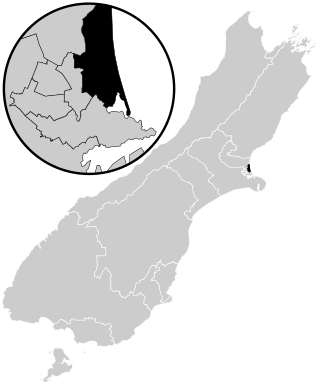
Christchurch East, originally called Christchurch City East, is a current New Zealand parliamentary electorate. It was first created for the 1871 election and was abolished for two periods, from 1875–1905 and again from 1946–1996. It was last created for the introduction of the MMP voting system for the 1996 election. The current MP is Reuben Davidson, a member of the New Zealand Labour Party who was first elected in the 2023 New Zealand general election.
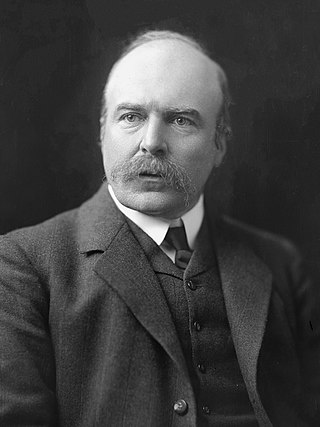
Robert McNab was a New Zealand lawyer, farmer, historian, and politician of the Liberal Party. He was Minister of Justice for the 18 months before his death.

David (Davie) McDougall was a United Party and an Independent Member of Parliament for Mataura, in the South Island of New Zealand.
Lyttelton is a former New Zealand parliamentary electorate. It existed from 1853 to 1890, and again from 1893 to 1996, when it was replaced by the Banks Peninsula electorate.
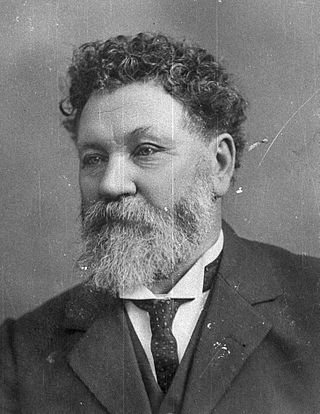
John McLachlan was a New Zealand Member of Parliament for Ashburton in the South Island.
Bruce was a rural parliamentary electorate in the Otago region of New Zealand, from 1861 to 1922. For part of the 1860s with the influx to Otago of gold-miners it was a multi-member constituency with two members.
Caversham was a parliamentary electorate in the city of Dunedin in the Otago region of New Zealand, from 1866 to 1908.
Mataura was a parliamentary electorate in the Southland Region of New Zealand, from 1866 to 1946.
Lincoln was a parliamentary electorate in the Canterbury region of New Zealand from 1881 to 1890. It was represented by two Members of Parliament.
Oamaru was a parliamentary electorate in the Otago region of New Zealand, during three periods between 1866 and 1978.
The Suburbs of Nelson is a former parliamentary electorate around the city of Nelson, New Zealand from 1861 to 1881.

Edward Richardson was a New Zealand civil and mechanical engineer, and Member of Parliament. Born in England, he emigrated to Australia and continued there as a railway engineer. Having become a partner in a contracting firm, a large project caused him to move to Christchurch in New Zealand, in which country he lived for the rest of his life.

The 14th New Zealand Parliament was a term of the New Zealand Parliament. It was elected at the 1899 general election in December of that year.
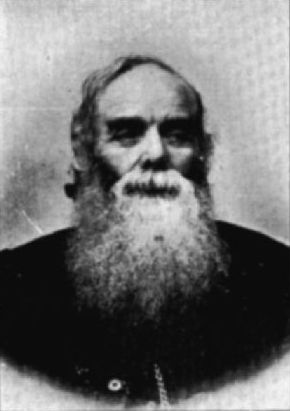
A 1889 by-election in the Lincoln electorate was held to fill a vacancy caused by the resignation of Arthur O'Callaghan from the Lincoln electorate. The by-election was won by Alfred Saunders, who beat John Ollivier.
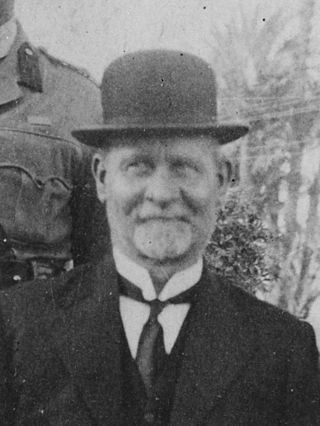
The mayor of Blenheim officiated over the borough of Blenheim, New Zealand. The office was created in 1869 when Blenheim became a borough, and ceased with the 1989 local government reforms, when Blenheim Borough was amalgamated with Picton Borough and Marlborough County Council to form Marlborough District. There were 31 mayors of Blenheim. The last mayor of Blenheim, Leo McKendry, was elected as the first mayor of Marlborough.

The 1917 Hawkes Bay by-election was a by-election held in the eastern North Island electorate of Hawkes Bay during the 19th New Zealand Parliament, on 8 March 1917.
The April 1865 Bruce by-election was a New Zealand by-election held in the multi-member electorate of Bruce during the 3rd New Zealand Parliament on 8 April 1865. It was triggered on 9 January that year by the resignation of separationist Thomas Gillies and won by prominent settler Arthur John Burns. The more liberal businessman William John Dyer was the sole other contester of the by-election, finishing with 43.33% of the vote.